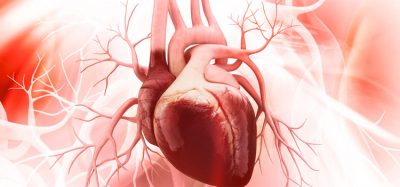The influence of the immune system on early human lung growth
Posted: 18 December 2023 | Drug Target Review | No comments yet
Understanding the mechanisms in lung formation could develop new therapeutic approaches for respiratory conditions.

Scientists from the Wellcome Sanger Institute, University College London (UCL) and the European Bioinformatics Institute Laboratory (EMBL) have demonstrated, using advanced single-cell technology, how early human lung immune cells develop. This has greatly furthered understanding of early lung development and the role of immune cells outside of immunity, offering novel insights into treating respiratory conditions, like chronic obstructive pulmonary disease (COPD).
This study has created a first-of-its-kind immune cell atlas of the developing lung and is part of the international Human Cell Atlas initiative which is mapping every cell type in the human body to transform our understanding of health and disease.
A significant section of the airways and mature lungs is made up of immune cells, which have critical gas exchange and barrier functions to provide protection against infection of the respiratory tract. However, compared to structural or lining cell types, the roles of immune cells in the developing organ have remained unexplored. Recent discoveries confirm the presence of immune cells in human lungs as early as five weeks into development.
Key regulators of lung development
The team analysed immune cells in early human lungs from five to 22 weeks of development to investigate whether the immune system might influence how lungs grow by using various techniques, like single cell sequencing and experiments with lung cell cultures. They found key regulators of lung development, including signalling molecule IL-1β and IL-13 that enable the coordination of lung stem cells differentiating into specialised mature cell types.
The researchers detected an infiltration of innate immune cells, followed by adaptive immune cells. Innate cells included innate lymphoid cells (ILCs), natural killer (NK) cells, myeloid cells, and progenitor cells. Adaptive immune cells included T cells, developing B lineage cells, and mature B lineage cells. This indicates that the lung environment supports B cell development.
These observations change the understanding of the immune and epithelial interactions that are crucial for foetal lung maturation and suggest that early immune disturbances could manifest as paediatric lung disease.
These novel insights into mechanisms in early lung formation will also further the development of new therapeutic approaches for regenerating damaged lung tissue and restoring lung function.
Dr Peng He and Dr Jo Barnes, co-first authors of the study at the Wellcome Sanger Institute and EMBL’s European Bioinformatics Institute, and UCL Division of Medicine respectively, explained: “By adopting a focused strategy in mapping the immune system, we reveal a symbiotic relationship between immune cells and developing lungs. These detailed insights open the door to potential regenerative therapies in not only the lung, but in other vital human organs.”
“We now know immune-epithelial crosstalk is a feature of early lung development. This vital baseline of healthy lung development will help us understand what happens when lung developmental processes get disrupted, for example in preterm births, which can lead to respiratory deficiencies”, Dr Marko Nikolić, senior author of the study at UCL Division of Medicine and honorary consultant in respiratory medicine, added.
Dr Kerstin Meyer, senior author of the study at the Wellcome Sanger Institute, commented: “The active participation of immune cells expands the possibilities for understanding and addressing impaired lung formation. What is super exciting about this mechanism is that it may well apply in other organ systems too.”
This study was published in Science Immunology.
Related topics
Cell Cultures, Drug Targets, Sequencing
Related conditions
Chronic obstructive pulmonary disease (COPD)







